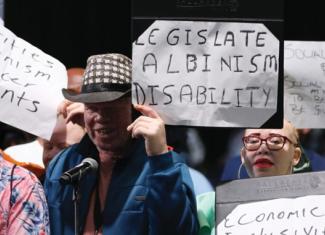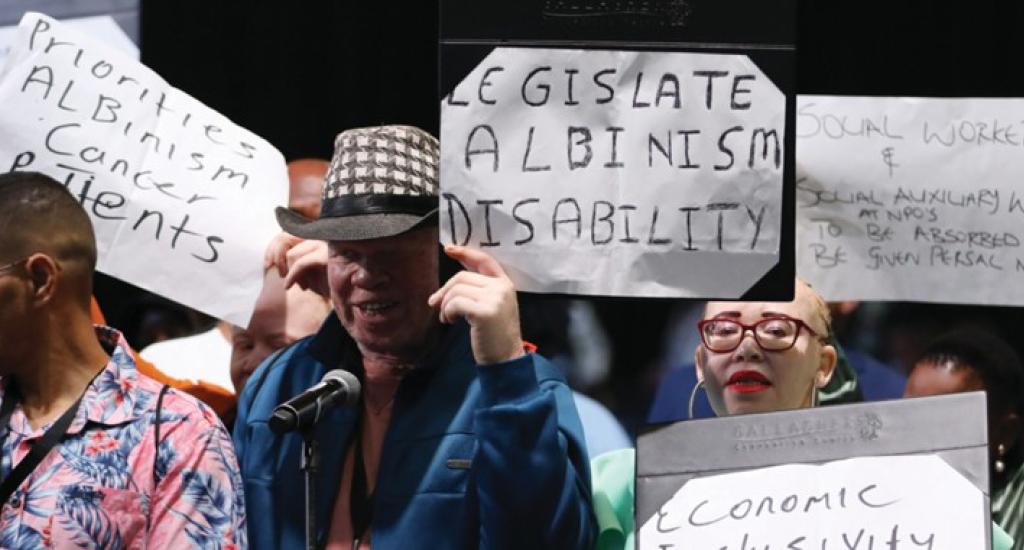Commemorating
Disability Rights Awareness Month

As Disability Rights Awareness Month (DRAM) unfolds, Mikateko Joyce Maluleke, the Director-General (DG) of the Department of Women, Youth and Persons with Disabilities, has emphasised the importance of collaborative efforts across all government and civil society organisations.
Her department plays a crucial role in coordinating the calendar of activities for DRAM, which aims to raise awareness and promote the rights of persons with disabilities.
“The theme for 2024 DRAM is ‘Celebrating 30 years of Democracy, creating a disability inclusive society for a better quality of life and protection of the rights of persons with disabilities,’” she explained.
Maluleke says the DRAM is divided into weeks and each week has a sub-theme aligned to the three priorities of Government.
While the first week will focus on a growing economy, aligned to the empowerment of persons with disabilities, the second week will hone in on advocating for the inclusion of every child with a disability.
Week three will deal with “a working government, a progressive disability rights agenda” and the fourth week with creating safer and secure communities for people with disabilities.
The DG said all departments were required by the White Paper on the Rights of Persons with Disabilities to meet the 7% employment equity target for persons with disabilities by 2030.
“Cabinet directed that all government departments should achieve the target of 3% employment equity by 2024/25. The challenge remains the high unemployment rate in South Africa as well as the lack of reasonable accommodation provisions at the workplace which comes at financial cost that is not budgeted for,” she said.
In her recent interview with Public Sector Manager magazine, she expressed the necessity for government procurement policies to favour businesses owned by people with disabilities, aiming for them to access 7% of public procurement.
She also mentioned that Sector Education and Training Authorities (SETA) have specific targets for training persons with disabilities, while the Small Enterprise Finance Agency (SEFA) and the Department of Small Business Development (DSBD) have established special funds to support this group of citizens.
The DG highlighted some of the things that have been done in the country over the past 30 years to promote and protect the rights of persons with disabilities.
Government has published guidelines through mandatory strategic frameworks on disability to guide all duty bearers, including the private and public sectors, on measures to put in place to ensure an accessible, enabling, conducive environment for persons with disabilities to operate equally and equitably.
“Relevant legislation and institutional frameworks are in place to advance and empower persons with disabilities. Disability is no longer viewed as a medical and welfare issue but as a human rights matter.
“Several initiatives at national and provincial government levels, for example, the Department of Agriculture, Land Reform and Rural Development’s (DALRRD) policy specifically targets persons with disabilities in post settlement programmes,” she said.
The Department of Justice and Constitutional Development by improving reasonable accommodation in 70 court buildings, has improved access to social assistance and disability grants; special schools and enrollment of learners with disabilities has almost doubled between 2002 and 2020.
The DG highlighted that the increase in disability grants from 804,249 in 1997 to 1,035,437 in 2023 illustrates the significant progress made in providing essential financial support for individuals with disabilities.
She outlined expanding on her department’s priorities for the next five years on programmes dedicated to women, youth and persons living with disabilities, saying:
“Focus is on a more local level to unlock mainstreaming in programmatic inclusion that includes training for public servants, budgeting for inclusion, and employment,” she said.
Maluleke concludes with a call to action for public servants:
“A true public servant is an employee that holds himself or herself to high standards of professionalism and ethics, and who serves the public with integrity, loyalty, impartiality, and objectivity,” she said. ❖




